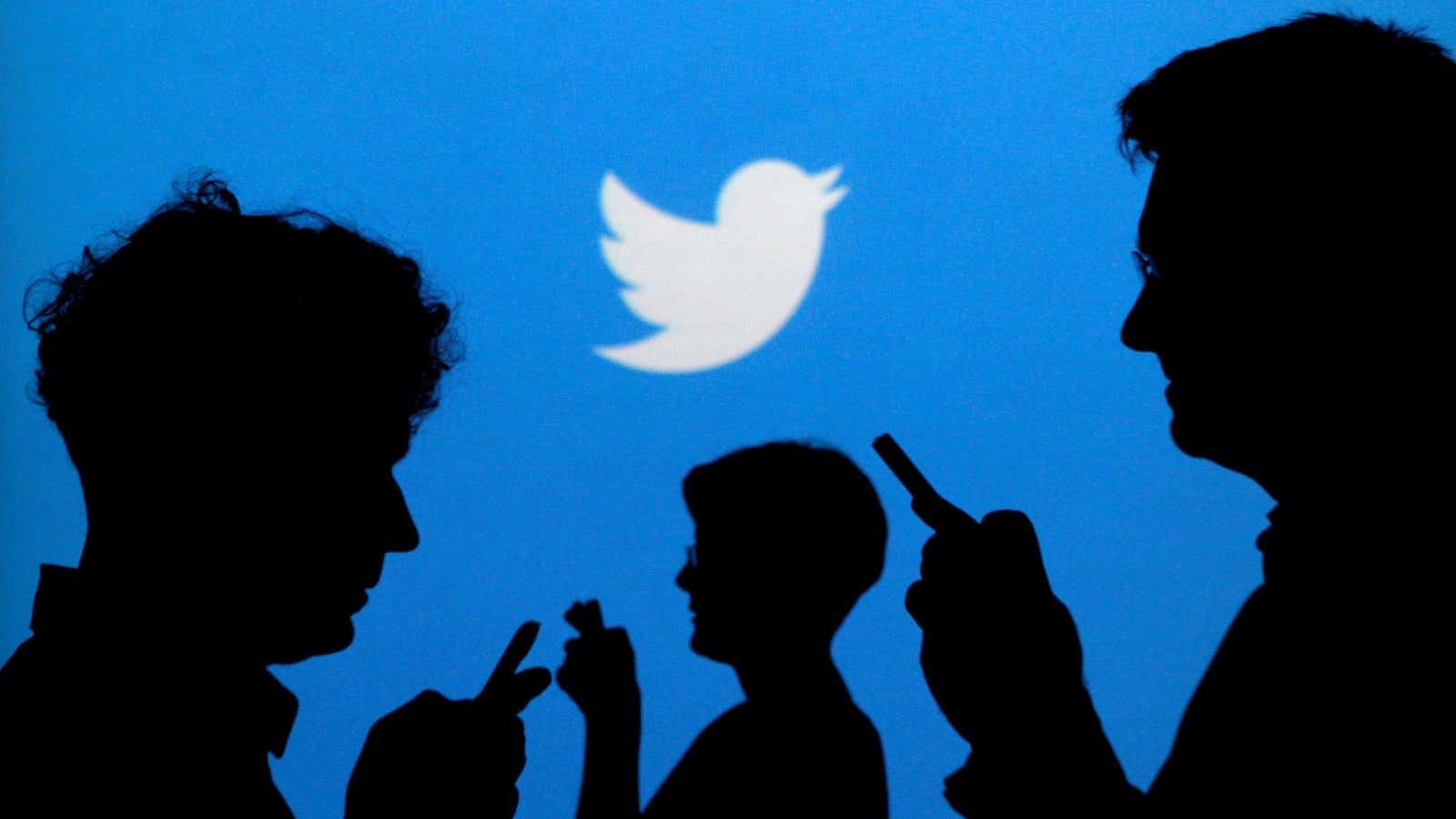Following repeated scandals at Facebook in 2018, #DeleteFacebook briefly trended as users quit the site in protest of the social networks’ questionable ethics and privacy violations. When it comes to protecting your own privacy though, quitting social media isn’t enough.
A study published in Nature Human Behavior Jan. 21 shows just how much can be predicted about someone based entirely on their friends’ social media presence. Researchers led by James Bagrow, mathematics and statistics professor at the University of Vermont, analyzed the data from 13,905 Twitter accounts, comprising 30.85 million Tweets in total. These users came from 927 “ego-networks”—each of these networks is made up of one Twitter user and their 15 most-frequently mentioned Twitter contacts.
The researchers found they could predict a user’s future messages based on the tweets of eight to nine of their contacts with nearly as much accuracy as based on that user’s own previous Tweets. Machine-learning algorithms were able to predict what word a Twitter user was most likely to write next based on their previous Tweets and interactions with up to 64% accuracy; this fell by just three percentage points to 61% when the algorithms made their predictions based on tweets from the user’s social network instead of their own. Overall, the researchers found 95% of what they could predict about any one person could be gathered based on their social network.
Though the study was only focused on Twitter, Bagrow says he expects similar patterns on all social networks.
The ability to predict what words a user will employ in the future opens up the possibility to know a lot more about them. The same language models tested in this study could, theoretically, be used to predict how likely it is for someone to use the word, “Republican,” or “Labour,” or a certain sports team. Earlier research shows that the language we use can reveal a huge amount, such as age, gender, and geographic information, which could enable companies to create detailed profiles that can easily be used for advertising purposes.
We’ve already seen the implications of this academic finding play out in the real world. Cambridge Analytica harvested the data of hundreds of thousands of people who’d never clicked on their app, but simply had friends who did. And, when people sign up to Facebook, they’re asked to upload their contact list so the site can suggest friends who are also on the network; as a result, Facebook has said it has data on a huge number of people who never signed up.
Bagrow says it’s important for social-media users to understand how their involvement affects the privacy of their online networks. “I think many people consider this an individual choice,” he says. “’It’s my data, they’re going to be tracking certain things, that’s fine.’ But if you’re providing useful data about yourself, then in principle you’re also providing useful information about your friends. The choice you’re making to participate in the platform is also affecting your friends, so it’s not necessarily an individual choice. I don’t think people recognize that.”
It’s not necessarily a terrible decision to be involved in social media, but Bagrow says we should recognize the consequences. “I’m concerned about a lack of awareness,” he says. “I think people underestimate how many sources of data there are. They underestimate just how common this is and [how] unavoidable.” To truly get off the grid, it seems you either have to detach from all your friends and colleagues, or ask them to go offline too; in other words, today, it’s all but impossible.
